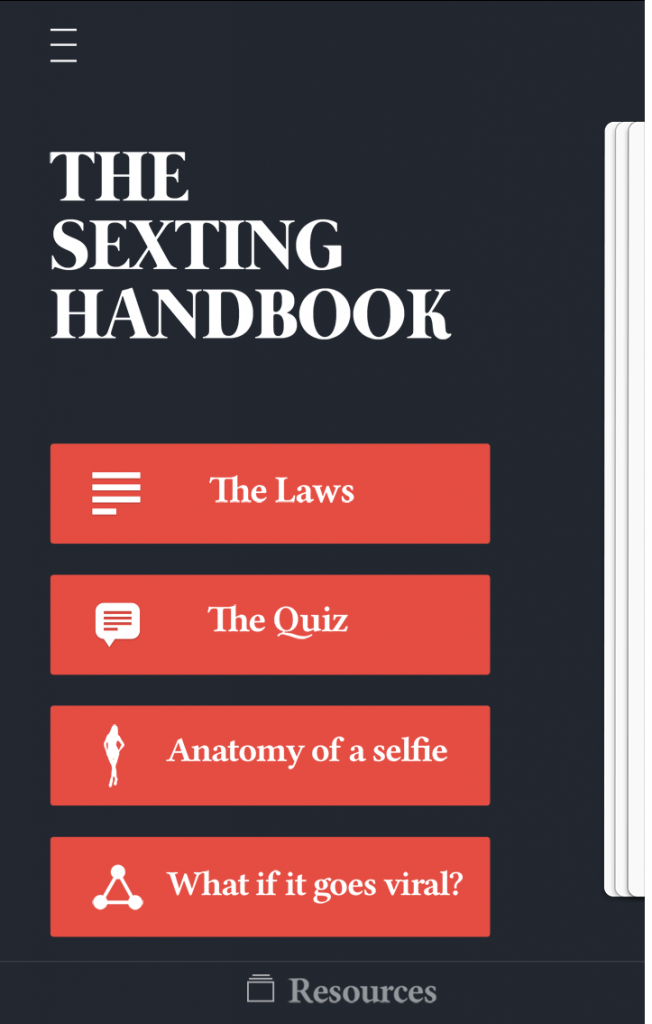Sex information app The Naked Truth has been released by the Law Society of South Australia.
When launching the app the Law Society of South Australia pointed to the lack of sex education in schools.
The society said it was releasing it because teenagers were being caught by child pornography laws designed to protect young people.
“The Law Society has long spoken publicly about the need for greater education for young people in relation to these laws,” it said.
The society said it hopes “the app proves to be a useful guide for young people and aids them in their understanding of the law”
Free for all devices, the app aims to help teenagers make sense of laws around sexting.
Annie Davis, lawyer and training coordinator at Youthlaw, a group that provides legal representation and lessons to young people, said The Naked Truth is a good way for young people to access information about sex, consent and sexting privately.
“We live in an age where teenagers and the younger generation are exposed to highly sexualised popular culture and there’s a disconnect between how people share these images and how the laws sees this behaviour.
“The difficulty in the way the laws are drafted is that young people who might take sexualised images of themselves can unwittingly be breaking child pornography laws,” Davis said.
Stephanie Tipping, coordinator for teenage education programs at Centre Against Sexual Assault, also believes engaging with young people through technology is good.
“But I do feel it needs to go alongside some sex and relationship education,” she said.

More than 85 per cent of Australian teens over 14 have phones with cameras and nearly 20 per cent have admitted to sending or receiving explicit images. .
Such teens are more likely to have sex at a younger age.
Teenagers aged 16-17 are the most likely to send sexts, with numbers declining after 18.
The age of consent differs across Australia. In Tasmania and South Australia it is 17; in other states it is 16.
Catharine Lumby, Professor of Media at Macquarie University, and researcher into the media habits of young people welcomed apps that educate young people about sex and technology.
But she warned that they should be backed up with a strong national curriculum on sex education – something currently lacking.
“An app like this really reinforces good work that’s done in education, where it is done (in sex education)” she said.
Professor Lumby says teaching the biology of sex is easier than teaching how to communicate.
“We can do this a whole lot better than we’ve done it … Kids say, ‘I know how to put a condom on a banana’ but if you say ‘Would you know how to ask someone if they want to have sex with you?’ they say ‘That’s really awkward’.”
Sexting is categorised by the law as child pornography. Even if both parties involved were of the same age and consenting they could be charged with the possession and distribution of child pornography and if found guilty they would be placed on the sex offenders register.
There are moves to change sexting laws in Victoria.
Attorney-General Robert Clarke said in August he hoped the changes would see “anyone under 19 years of age who creates, possesses or distributes an intimate image of themselves or of another minor who is less than two years younger than them not be guilty of a child pornography offence.”





